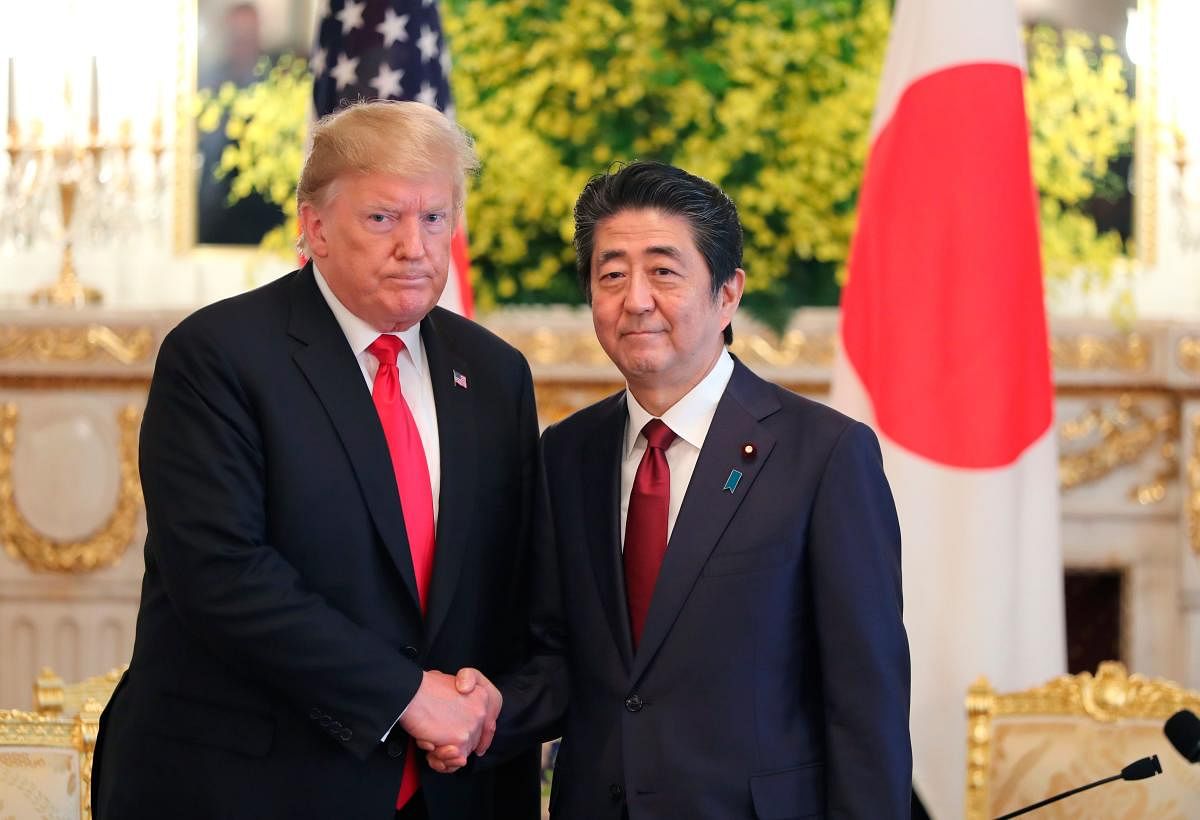
U.S. President Donald Trump marked the 60th anniversary of the signing of the current U.S.-Japan security treaty with a call for a stronger and deeper alliance between the two countries, despite criticising the pact six months ago.
"As the security environment continues to evolve and new challenges arise, it is essential that our alliance further strengthen and deepen," Trump said in a statement dated Jan. 18.
"I am confident that in the months and years ahead, Japan's contributions to our mutual security will continue to grow, and the alliance will continue to thrive."
In June last year, Trump told a news conference in Japan that the 1960 treaty - which was signed exactly six decades ago on Sunday, and is the linchpin of Japan's defence policies - was "unfair" and should be changed, echoing his long-held view that Japan is a free-rider on defence.
The treaty obligates the United States to defend Japan, which under its U.S.-drafted constitution renounced the right to wage war after World War Two. Japan in return provides military bases used by the United States to project power in Asia.
The treaty was first signed in 1951 and revised in 1960 under Japanese Prime Minister Shinzo Abe's grandfather, then-premier Nobusuke Kishi. Kishi was forced to step down afterwards following a public outcry from Japanese critics who feared the pact would pull their country into conflict.